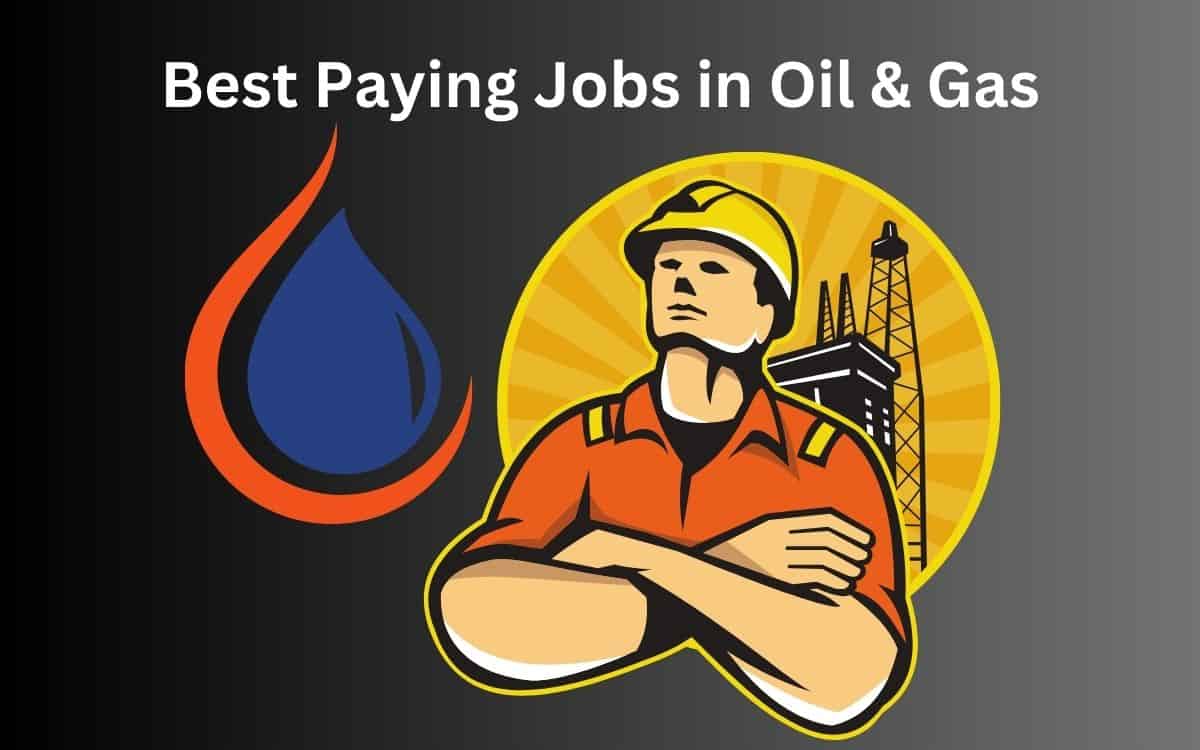
The production of Oil & Gas is one of the top industries in the world. Not only do they employ thousands of people globally, but it is also one of the best-paying jobs available.
If you’re looking for a lucrative new career, you may want to consider the best paying jobs in oil & gas production. With so many opportunities available, and salaries among the highest in the industry, this sector promises to provide job seekers with excellent pay.
The market for these jobs has steadily risen over the past decade, making it an ideal option if you want to pursue a career with high salaries. With excellent safety standards and experienced managers overseeing operations, you can be confident that the work environment will be secure and well-managed.
Many advancement opportunities and ongoing training programs keep you updated with industry trends and regulations. This article will guide you through the top oil and gas production jobs.
Let’s take a deep dive!
Overview of the Best Jobs in Oil & Gas Production
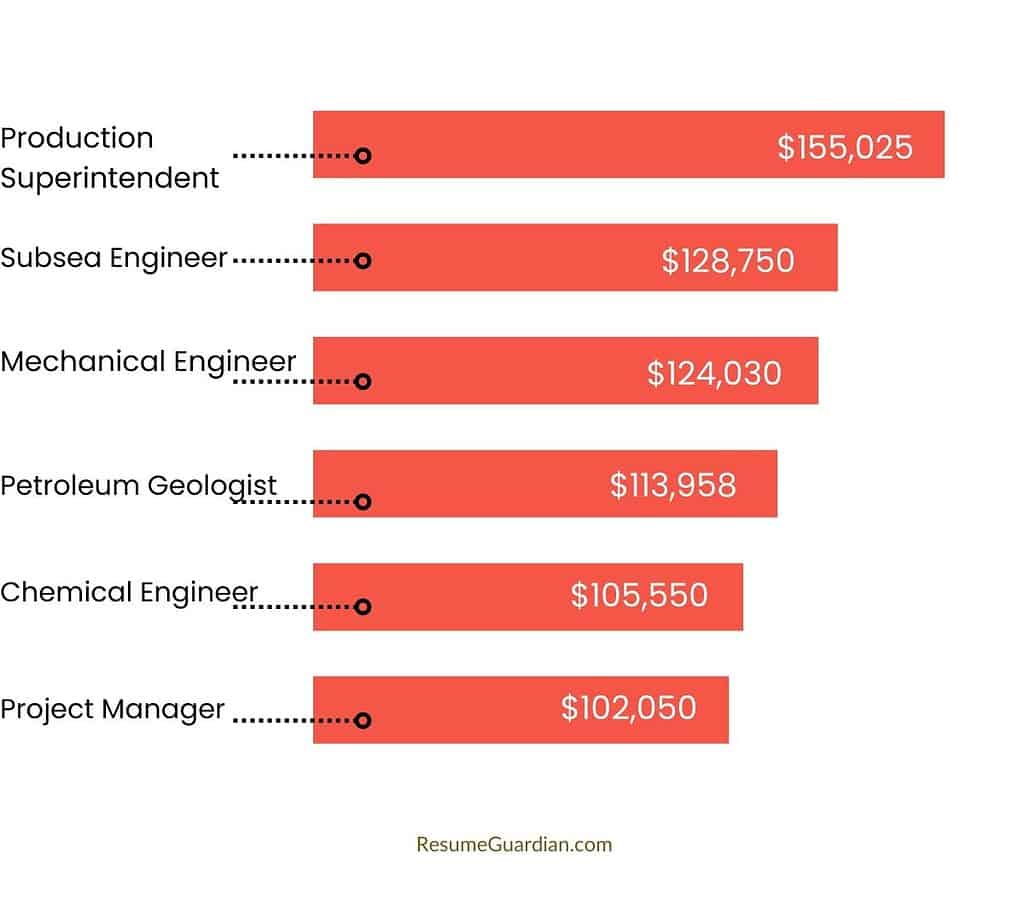
What Are the Best Jobs in Oil & Gas Production?
| Serial | Job | Median Yearly Salary | Rating |
|---|---|---|---|
| 1 | Petroleum Engineer | $75,044 | ⭐⭐⭐⭐ |
| 2 | Electrical Engineer | $68,930 | ⭐⭐⭐⭐ |
| 3 | Project Manager | $102,050 | ⭐⭐⭐⭐⭐ |
| 4 | Chemical Engineer | $105,550 | ⭐⭐⭐⭐⭐ |
| 5 | Subsea Engineer | $128,750 | ⭐⭐⭐⭐⭐ |
| 6 | Conflict Management | $97,330 | ⭐⭐⭐⭐ |
| 7 | Petroleum Geologist | $113,958 | ⭐⭐⭐⭐⭐ |
| 8 | Mechanical Engineer | $124,030 | ⭐⭐⭐⭐⭐ |
| 9 | Gas Plant Operator | $46,190 | ⭐⭐⭐ |
| 10 | Production Superintendent | $155,025 | ⭐⭐⭐⭐⭐ |
Related Posts:
Best Paying Jobs In Other Consumer Services: Earn Big
Best Paying Jobs in Apparel
1) Petroleum Engineer
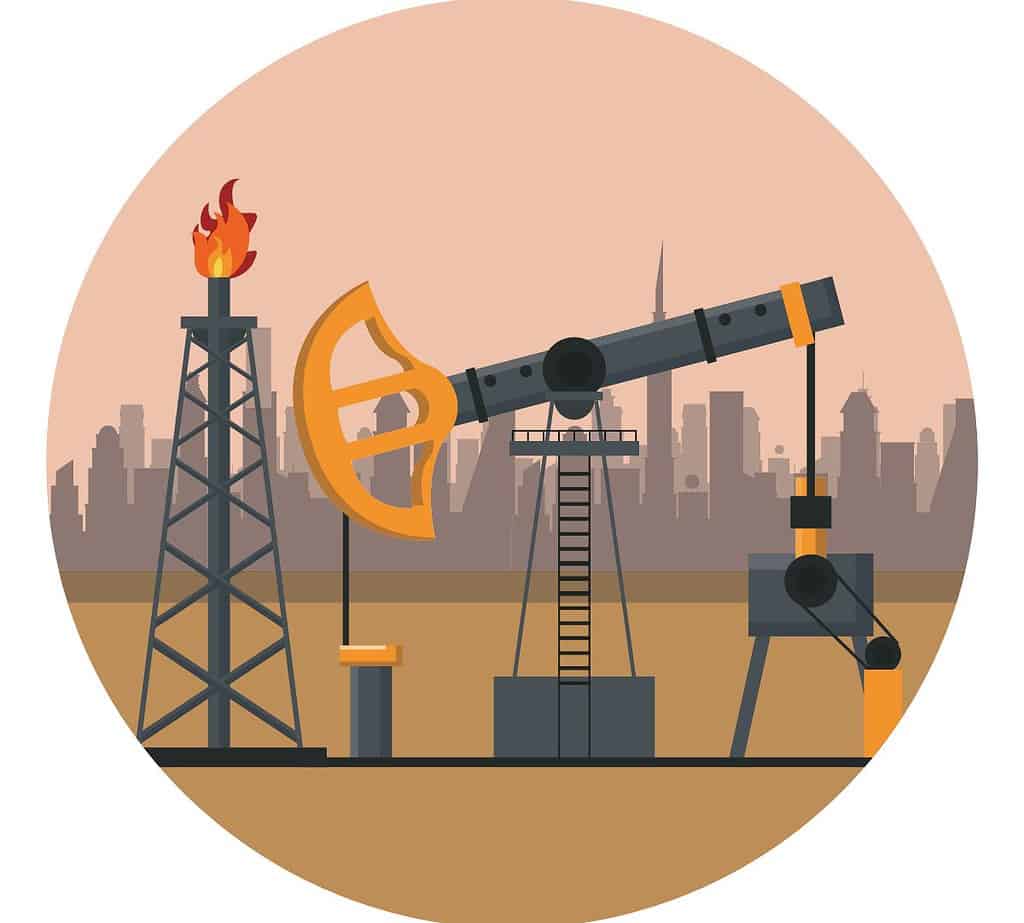
If you have a strong interest in exploring the depths of energy development, then becoming a petroleum engineer may be the perfect career for you.
As a petroleum engineer, you’ll be at the forefront of designing extraction methods, managing operations, and monitoring well performance.
Strong knowledge of equipment, engineering fundamentals, geology, physics, chemistry, and petroleum laws is essential.
What they do
- Develops plans for drilling oil and gas wells
- Establishes operational methods to access and extract reserves
- Maintains safety protocols for personnel when engaging in field operations
Skills:
- Expertise in the principles of engineering, geology, chemistry, and physics
- Knowledge of oil and gas exploration techniques
2) Electrical Engineer
Electrical engineering superheroes are the behind-the-scenes masterminds who design, develop, and test electrical systems for everything from cars to medical devices.
With a strong foundation in math, physics, and computer science, they tackle complex problems, communicate effectively, and unleash their creativity to bring innovative solutions to life.
They keep the world running smoothly, one circuit at a time.
What they do
- Designs, tests, and troubleshoots electrical systems
- Creates schematics and diagrams to illustrate the structure of a system or its components
- Investigates customer complaints
Skills:
- Knowledge and experience of electrical engineering techniques and principles
- Able to operate, maintain, troubleshoot, and repair electrical equipment used in oil & gas production
3) Project Manager
Looking for a career where you can take charge of the entire oil and gas production process?
As a project manager in this field, you’ll oversee the development of these valuable resources from initial exploration phase to the final stages of production.
It is essential that you have a strong understanding of the complexities and dynamics of the oil & gas industry in order to manage projects effectively.
What they do
- Oversees project’s budget and resources to ensure that the project is completed within budget
- Monitors the progress of the project to identify potential risks and problems and mitigate the risk.
- Establishes effective communication systems between team members
Skills:
- Expertise in managing large projects with multiple stakeholders.
- Good organizational, problem-solving, communication, and interpersonal skills
4) Chemical Engineer
Chemical Engineers in the Oil & Gas industry are the true oil whisperers.
They rock the responsibility of operating and maintaining all the crazy contraptions involved in oil and gas production – think refineries, pipelines, rigs, you name it!
Armed with their chemical engineering prowess, they keep a watchful eye on these machines, swiftly tackling any issues that pop up and devising ingenious solutions.
What they do
- Designs operates, and maintains chemical engineering processes related to oil and gas production.
- Develops cost-effective solutions to optimize the production process.
- Troubleshoots issues
Skills:
- Knowledge of Chemistry and Chemical engineering processes
- Understands oil and gas production principles
5) Subsea Engineer
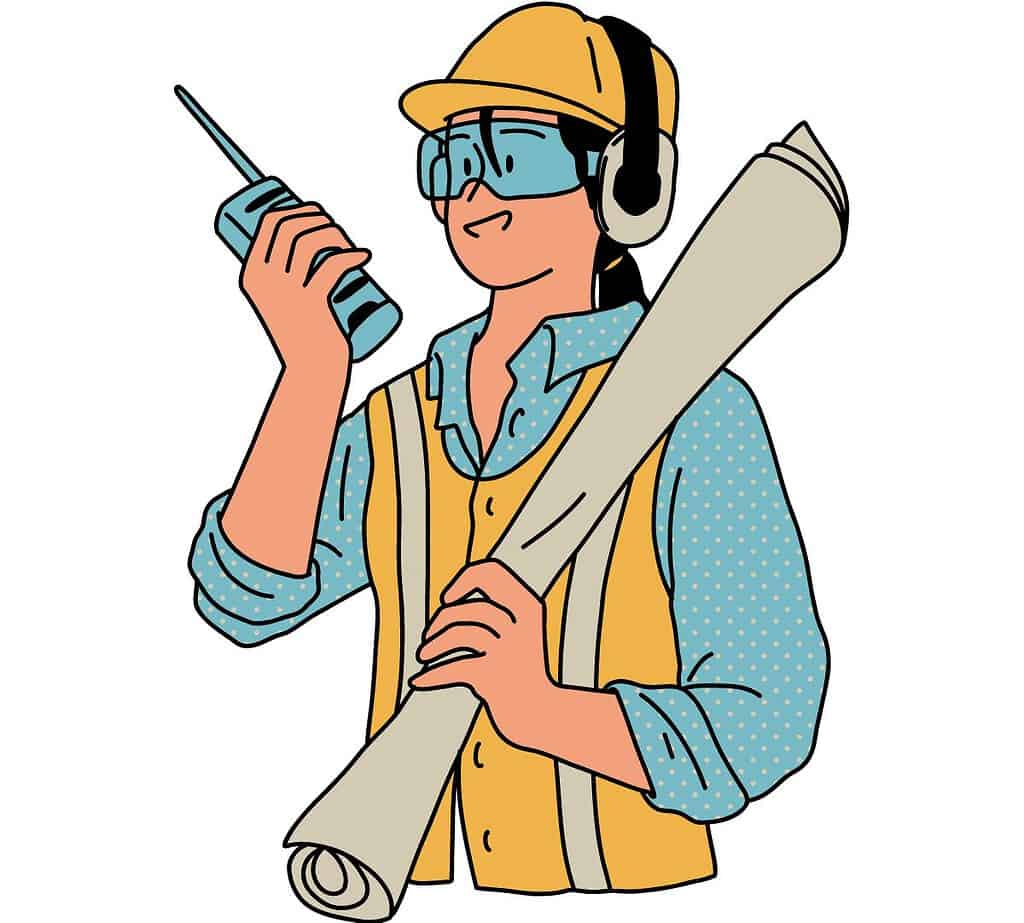
Dive into the exciting world of Subsea Engineers! These adventurous individuals are the masterminds behind designing, installing, operating, and maintaining the cutting-edge systems that tap into the hidden treasures beneath the ocean floor.
They ensure smooth oil and gas extraction from subsea platforms and pipelines to umbilicals and risers. So, if you’re ready to make a splash in this rewarding career, research, gear up with industry-specific training, and take the plunge.
What they do
- Designs and creates Subsea systems.
- Maintains offshore rigs, platforms, equipment, and services.
Skills:
- Extensive knowledge of Offshore Engineering
- Experience working with Maritime Oil and Gas industry equipment
6) Conflict Management Professional
As a Conflict Management professional in the dynamic realm of oil and gas production, you’ll be the glue that fosters a harmonious working environment.
You’ll ensure satisfaction for all parties involved through adept mediation and dispute resolution between workers and management.
Your knowledge of labor laws and commitment to safety will also play a crucial role in compliance and maintaining secure job sites.
Strong communication skills and quick thinking are your superpowers when conflicts arise.
What they do
- Develops strategies to identify and resolve conflicts between different stakeholders
- Monitors the production environment for emerging disputes and takes preventive steps.
- Oversees compliance with relevant rules and regulations
Skills:
- Excellent communication, negotiation, and problem-solving skills
- Strong organizational, analytical, research, and decision-making abilities
7) Petroleum Geologist
As a Petroleum Geologist you can unleash your passion for discovering valuable energy resources!
With expertise in studying geological data, mapping formations, and recommending drilling strategies, you’ll play a vital role in ensuring safe and efficient extraction processes.
Collaborating with engineers and technicians, you’ll develop cost-effective plans to harness these resources while minimizing environmental impact.
What they do
- Analyzes geological data to understand the composition of rocks, minerals, and other formations
- Estimates potential reserves of oil and gas based on interpretation of seismic surveys
Skills:
- In-depth understanding of geological processes
- Extensive knowledge of sedimentary basins
8) Mechanical Engineer
As a Mechanical Engineer, your mission is to design, develop, and maintain machines and mechanical marvels that keep the industry running smoothly.
From constructing and testing to analyzing data and providing cost-effective solutions, you’re the problem-solving guru who keep operations on track. Teamwork is key, as you collaborate with fellow engineers and technical wizards to meet project requirements.
And don’t forget to stay in the know about the latest tech advancements, because your innovative improvements can revolutionize your company’s operations. Get ready to engineer your way to success in the oil and gas realm!
What they do
- Designs and develops mechanical components for oil and gas production systems
- Inspects and evaluates mechanical components used in oil and gas production systems.
- Carry out maintenance work.
Skills:
- Extensive knowledge of mechanical engineering principles and thermodynamics
- Knowledge of safety regulations related to oil & gas production
- Excellent problem-solving skills
9) Gas Plant Operator
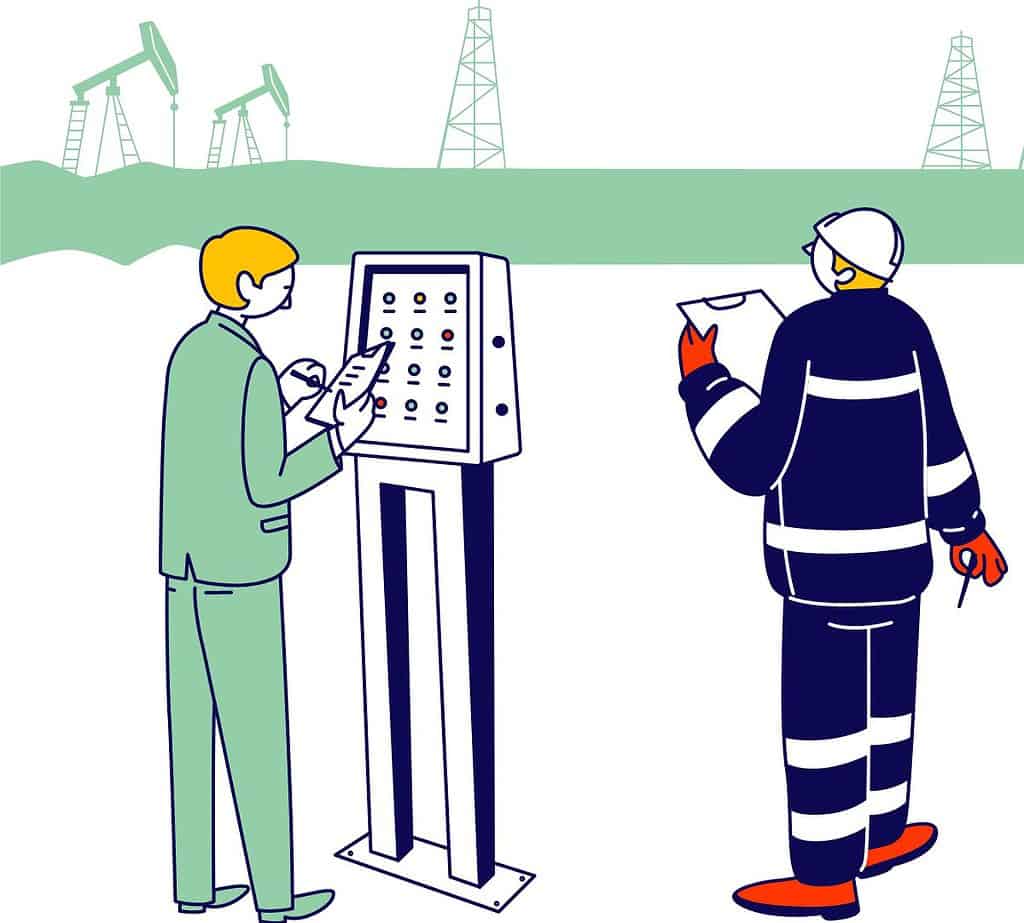
Gas Plant Operators are the guardians of efficiency and safety, keeping those gas plants in tip-top shape.
As a Gas Plant Operator, you handle everything from monitoring process parameters and performing maintenance to troubleshooting machinery and managing waste streams. Oh, and let’s not forget about recording data, complying with regulations, and tackling other tasks.
It’s a delicate balance of safety and efficiency, but you’re the masters who make it happen, all while keeping those natural gas plants in their glory.
What they do
- Monitors equipment performance and flow of gas during production
- Troubleshoots technical issues.
- Operate and adjust valves, pumps, compressors, meters, etc. for optimal functioning.
Skills:
- Knowledge of plant operation processes and guidelines
- Excellent analytical and problem-solving skills
10) Production Superintendent
Imagine being the maestro of Oil & Gas production, the Production Superintendent who keeps everything running like a well-oiled machine.
They’re the ultimate multitaskers, overseeing facility operations, managing staff, and making sure safety and efficiency take center stage. From scheduling maintenance to monitoring production costs and complying with regulations, they’ve got it all under control.
It’s a high-stakes symphony, and they conduct it flawlessly!
What they do
- Maintains accurate records of production, personnel, and inventory
- Ensures all necessary equipment is running properly and efficiently
Skills:
- Ability to understand and apply safety regulations and procedures
- Knowledge of upstream oil and gas production instruments, valves, and pumps.
- Able to maintain, repair, and operation of production equipment.
FAQs
How We Picked These Top Paying Oil & Gas Production Jobs
To identify top Oil & Gas Production jobs, we examined the salary levels and top skills requirements to perform the job.
Income data for all the listed jobs were sourced via reputable job sites like Salary.com and BLS.
What is the Oil & Gas Production Industry?
The oil and gas production industry is a large part of the global economy, responsible for producing much of the world’s energy needs.
This industry encompasses everything from exploration and drilling to extraction, refining, and transportation. It is an incredibly complex process that requires special expertise and equipment to be successful.
As the demand for oil and gas increases, so does the need for experienced professionals in this field. Those who successfully navigate its complexities can find rewarding careers in this lucrative sector.
Is Oil & Gas Production A Good Career Path?
Oil and gas production is a great career path for those looking to be part of an industry with a long-term, steady outlook.
It provides the opportunity to work with cutting-edge technology and machinery while earning competitive salaries. Plus, many positions involve working outdoors in some of the most beautiful landscapes in the world.
Here are top reasons why Oil & Gas production is a good career path:
- Global Industry: Oil and gas production is a global industry that offers domestic and international career opportunities.
- Job Security: The oil and gas industry is known for its stability and long-term job security and requires a skilled workforce to meet energy demands.
- Competitive Compensation: Offers attractive salaries, bonuses, and benefits
- Diverse Career Options: It offers diverse career paths, from engineering and geology to operations, project management, and environmental sciences.
- Technological Advancements: The industry embraces advancements like automation, data analytics, and digitalization to enhance productivity.
- Professional Development: The industry offers opportunities for training and skill enhancement.
- Global Networking: Provides opportunities to collaborate with professionals from various backgrounds, including engineers, geologists, economists, and policymakers.
- Transferable Skills: Skills gained in the oil & gas industry, like problem-solving, teamwork, project management etc, are highly transferable across other industries.
- Challenging Work Environment: This dynamic work environment provides intellectually stimulating opportunities and helps you grow personally and professionally.
- Energy Transition Opportunities: You get opportunities to contribute to transitioning towards renewable energy sources.
Pros And Cons Of Oil & Gas Production Careers
Pros
Cons
How to Find the Highest-Paying Jobs in Oil& Gas Production
Oil and gas production is a highly competitive and lucrative industry with ever-growing job opportunities.
Here are a few tips to stay on top and find jobs that offer high salaries:
- Network through professional organizations such as American Petroleum Institute.
- Stay informed about upcoming job openings and hiring trends.
- Check on salary rates regularly as it depends on market conditions.
- Seek out positions in areas with higher average salaries.
Educational Requirements for an Oil & Gas Production Job
A degree in petroleum engineering or a related field is invaluable to understanding the technical complexities of working in the sector.
Most employers require a minimum bachelor’s degree but those interested in specialized roles may have to have higher qualifications, such as a master’s or doctorate.
Experience in the field can be equally valuable as formal education so having an internship or practical experience can really help when applying for these positions.
Employers may also require specific certifications related to drilling or other production activities.
Here are the educational requirements for Oil and Gas Production:
- High school diploma or equivalent (GED)
- Post-secondary degrees in petroleum engineering, chemistry, geology, geophysics, or other relevant fields are preferred for more advanced positions.
- Relevant safety training certificates may be required depending on the job type.
- Industry certifications such as the Certified Petroleum Professional (CPP) designation can increase employability and advancement opportunities
Final Thoughts
The oil and gas industry offers some of the best-paying jobs in the country, with amazing salary ranges.
From construction managers and geologists to engineers and technicians, there are a variety of positions available that offer big salaries and various perks. Oil & gas production is an ever-growing business that provides some of the most lucrative opportunities today.
Whether you are looking for full-time or part-time employment, it can be a great way to jumpstart your career and earn a steady paycheck. Those who can stay up on the latest trends and technologies will have an advantage over those who do not.
With so much growth potential, it’s no wonder why a career in oil & gas production is one of the most sought-after.






